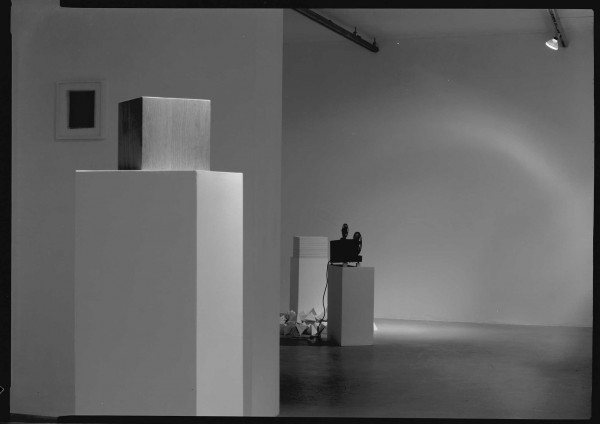Jesse Ash
Thursday, 21 April 2011
Work from his oeuvre.
“Jesse Ash: I have been reading a bit about the chess grand master Bobby Fischer, who only passed away recently. His story is fascinating. But I think his match against Boris Spassky in Reykjavik really interests me. The match was presented as a ‘cold war battle’ and so had deep political significance, yet all this hype and ‘meaning’, revolved around the game, with its own rules, formulas, patterns. I like the way this ‘meaning’ is represented, or signified through the formal elements of these wooden chess pieces, their individual moves, sequences, the checquered board and its territories.
David Lewis: The chess match as a (now traditional) metaphor for art?
JA: Not for art solely – there are a lot of things that collide here, some of which I don’t have specific answers for, but I think that’s why it interests me. There’s something about spheres of activity which mirror and reflect each other, where associations exist across and through small micro internal moments like the construction of a chess move in the mind of Bobby Fischer, to the board as a mirror of territorial occupation, to the macro global economic / military movements. But this is all played out through a very specific system confined to a table in a room in Reykjavik. The funny thing is that as I’m thinking about this, I can hear the British national anthem in my head … because while I was looking into this event in Iceland, I watched a documentary on the cod wars between British and Icelandic fishermen. There’s a scene where one of the British fishing boats plays the anthem through a tiny radio propped on the deck of his boat in the middle of North Sea. He stands there, in his boat facing Iceland. It’s a really humble action of defiance. The cod war was taking place at the same time as the chess match. I love the idea of this tiny, crackling sound in the middle of a vast expanse of water, playing simultaneously as Bobby Fischer moves a wooden piece which has potential significance to global politics. This was meant to lead to a work, but I haven’t made it yet. Maybe it’s better just like this, in words?” – Fragment from an interview published in UOVO, issue/17, 2008, pp 128-145.



